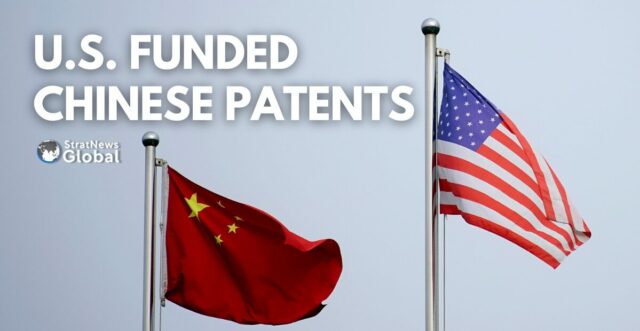Research Funding Details
The U.S. Department of Defense, NASA, and other federal agencies have funded research that resulted in over 1,000 U.S. patents granted to China-based inventors since 2010. This data, provided by the U.S. Patent and Trademark Office, highlights the ongoing collaboration in sensitive fields such as biotechnology and semiconductors. These findings, revealed by Reuters, have not been previously reported and are likely to intensify calls to reconsider or renegotiate the U.S.-China Science and Technology Agreement (STA). Critics argue that this agreement disproportionately benefits China, the U.S.’s primary geopolitical rival.
Scope Of Patents And Funding Sources
Between 2010 and the first quarter of 2024, the U.S. Patent and Trademark Office granted 1,020 patents funded at least partially by the U.S. government and involving inventors based in China. These patents span crucial sectors, including 197 in pharmaceuticals and 154 in biotechnology, both strategic industries for China and the U.S.
Several U.S. government agencies contributed to the research behind these patents:
- The Department of Defense supported 92 patents.
- The Department of Energy funded 175 patents.
- NASA, despite legal restrictions on collaboration with China, was linked to four patents.
- The Department of Health and Human Services (HHS) funded the most patents, contributing to 356.
Representative John Moolenaar, chairman of the House of Representatives’ select committee on China, expressed alarm over U.S. taxpayers unknowingly funding patents claimed by Chinese entities. He highlighted that nearly 100 of these patents were tied to the Department of Defense. The patent office, NASA, and other involved agencies have not commented on these findings.
The U.S. State Department, responsible for renegotiating the STA, acknowledged ongoing discussions with China about the agreement. A spokesperson emphasized the U.S.’s commitment to safeguarding its interests in science and technology.
Liu Pengyu, a spokesperson for the Chinese embassy in Washington, responded by stating that science and technology should remain an “open business” and urged U.S. officials to move beyond a Cold War mentality.
The Future Of The U.S.-China Science And Technology Agreement
Initially celebrated as a stabilizing force in U.S.-China relations, the STA is now under scrutiny due to concerns about Beijing’s military growth and alleged intellectual property theft. Some lawmakers argue that the agreement should not be renewed, citing risks to national security. However, supporters of the pact believe that ending it could hinder academic and commercial cooperation and limit the U.S.’s ability to monitor China’s technological advancements.
The agreement, originally signed in 1979, has been extended multiple times. The latest six-month extension ended in August 2023, with the possibility of another short-term extension as both nations work on renegotiating its terms.
Global Context
While US funds Chinese research only for a small fraction of China’s global patents, they contribute to the broader context of global innovation. In recent years, China has surpassed the U.S. as the world’s leading filer of patent applications.
This article originally appeared on Interstellar.News
(With Inputs from Reuters)
















